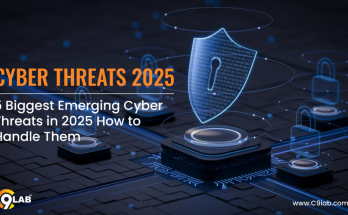Blockchain Beyond Cryptocurrency: Real-World Applications
When most people think of blockchain, their minds immediately go to cryptocurrencies like Bitcoin and Ethereum. But while digital currencies were the first major use case, blockchain technology has evolved far beyond financial transactions. Today, blockchain is transforming a wide range of industries by providing transparency, security, and decentralization. In this article, we’ll explore the real-world applications of blockchain that go beyond cryptocurrency and examine how this technology is reshaping the world.
What is Blockchain?
At its core, a blockchain is a distributed digital ledger. It records transactions across many computers in such a way that the registered transactions cannot be altered retroactively. This system is decentralized, meaning it doesn’t rely on a central authority like a bank or government to verify or maintain the data.
Blockchain’s benefits include:
-
Immutability: Once data is recorded, it cannot be changed.
-
Transparency: All transactions are visible to participants.
-
Security: Data is encrypted and distributed across nodes.
-
Efficiency: Reduces the need for middlemen and manual processes.
1. Supply Chain Transparency
One of the most promising applications of blockchain is in supply chain management. Companies can use blockchain to track the origin and journey of goods from raw materials to finished products.
For example:
-
Food safety: Walmart uses blockchain to trace produce and reduce the spread of contamination.
-
Luxury goods: LVMH uses blockchain to verify the authenticity of high-end products.
-
Pharmaceuticals: Blockchain helps ensure the integrity of drug shipments and prevent counterfeit medicine.
By providing a secure and immutable record of each step in a product’s journey, blockchain helps businesses and consumers build trust.
2. Healthcare Record Management
Patient data is often siloed across multiple systems and providers, making it hard to access and prone to errors. Blockchain can provide a secure, unified, and accessible record of a patient’s health history.
Benefits include:
-
Patients have full control over who can view their data.
-
Reduces duplication and medical errors.
-
Enhances privacy and compliance with regulations like HIPAA.
Projects like MedRec and Healthereum are already piloting blockchain solutions for electronic health records and patient engagement.
3. Voting and Digital Identity
Blockchain could help restore trust in democratic processes by enabling secure, transparent online voting. Each vote is recorded as a unique, verifiable transaction, making fraud and tampering nearly impossible.
Similarly, blockchain-based digital identities offer a way for people to prove who they are online without relying on centralized platforms.
Benefits:
-
Reduces voter fraud and manipulation.
-
Empowers the unbanked and undocumented to access services.
-
Prevents identity theft.
Countries like Estonia and Switzerland have experimented with blockchain-based voting systems, showcasing its potential to modernize civic infrastructure.
4. Real Estate and Land Title Management
Property transactions are traditionally slow, expensive, and paperwork-heavy. Blockchain can streamline real estate deals by digitizing land titles, contracts, and ownership records.
Use cases include:
-
Reducing fraud and disputes over property rights.
-
Enabling faster, more secure transactions.
-
Improving transparency in public land registries.
Countries like Georgia and Sweden have tested blockchain to manage land registries with promising results.
5. Intellectual Property and Digital Rights
Artists, musicians, and creators often struggle to prove ownership of their work and receive fair compensation. Blockchain can register intellectual property rights on an immutable ledger, ensuring creators are properly credited and paid.
Platforms like:
-
Audius (for music streaming)
-
Foundation and OpenSea (for NFTs and digital art)
…are allowing creators to tokenize their work and sell it directly to fans, bypassing traditional gatekeepers.
6. Smart Contracts
Smart contracts are self-executing agreements written in code that run on a blockchain. These contracts automatically enforce the terms of an agreement once predefined conditions are met.
Applications include:
-
Insurance claims that are paid out automatically after an event.
-
Rental agreements where access is granted when payment is received.
-
Freelance work where funds are held in escrow and released upon completion.
Smart contracts reduce the need for intermediaries like lawyers or banks, cutting costs and speeding up processes.
7. Decentralized Finance (DeFi)
Although closely related to cryptocurrency, DeFi represents a broader movement to recreate financial services like lending, borrowing, and trading without centralized institutions.
Examples:
-
Aave and Compound allow users to earn interest or borrow funds using crypto collateral.
-
Uniswap and SushiSwap offer decentralized exchanges for trading assets directly.
DeFi is enabling global access to financial services, especially in regions with underdeveloped banking infrastructure.
8. Energy and Sustainability
Blockchain is being used to track carbon credits, manage peer-to-peer energy trading, and monitor supply chains for environmental compliance.
Examples include:
-
Power Ledger: Allows users to buy and sell excess solar energy.
-
IBM’s blockchain for tracking carbon emissions across industries.
-
Verra and Toucan: Tokenizing carbon offsets for transparent trading.
This increases accountability and helps companies prove their sustainability claims.
9. Gaming and Virtual Economies
In blockchain-based games, players can own, trade, and sell virtual assets such as skins, weapons, and land. These digital assets are often represented as non-fungible tokens (NFTs).
Games like:
-
Axie Infinity
-
Decentraland
-
The Sandbox
…are giving rise to new business models where players can earn real-world income through in-game activities.
10. Government and Public Services
Governments can use blockchain to manage everything from taxes and welfare distribution to public records and immigration.
Benefits include:
-
Reducing corruption through transparent records.
-
Increasing efficiency in service delivery.
-
Enabling secure, paperless documentation.
Dubai aims to become a fully blockchain-powered government by the end of the decade.
Conclusion
While blockchain’s origins lie in cryptocurrency, its potential extends far beyond digital coins. From healthcare and supply chains to governance and energy, blockchain is enabling a new era of transparency, trust, and efficiency. As more industries adopt this technology, we can expect to see a shift from centralized systems to decentralized, democratized solutions that put users and communities in control.



